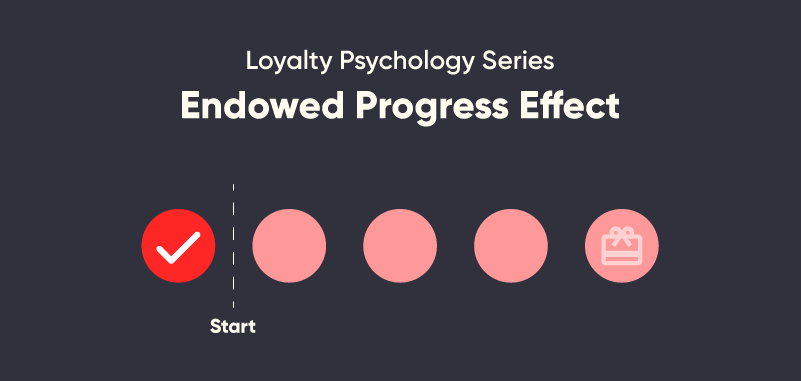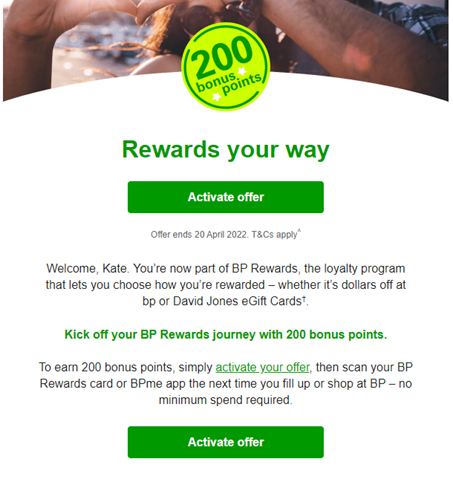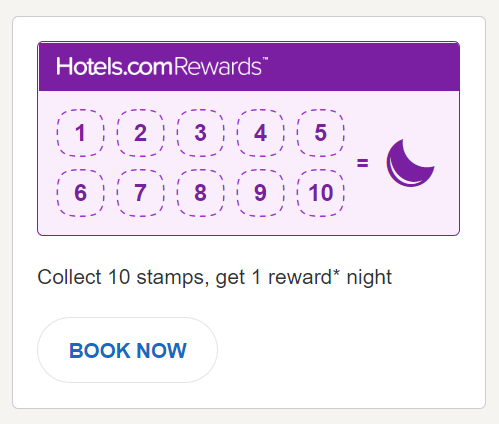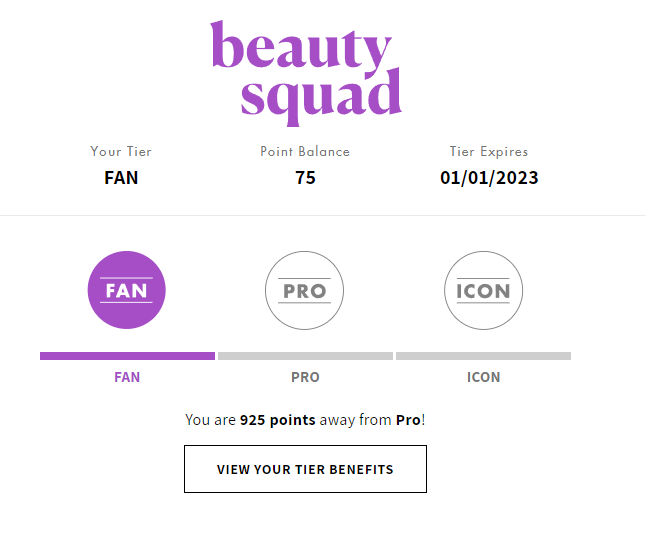
Many loyalty programs tap into the psychological phenomenon of the Endowed Progress Effect to motivate members to advance towards a goal. It refers to the idea that an individual is more likely to engage with a loyalty program if they have already made progress. Various brands will incorporate this theory into their loyalty strategy to motivate members to reach a goal, thereby generating repeat business.
Definition: The Endowed Progress Effect suggests that an individual is more likely to progress towards a goal if they are given artificial advancement towards that goal. In regards to loyalty programs, it gives the illusion that less effort is required to successfully earn a reward.
How does the Endowed Progress Effect generate member activity?

Scholars Nunes and Drèze (2006)[i] conducted research that divided participants into two groups. Group A needed to collect ten stamps to earn a free car wash, but the card already had two ‘free’ stamps coloured in. Group B only had to collect eight stamps but were not given any free stamps to help them progress.
Despite both groups needing to collect eight stamps, Group A (with the two free stamps) saw a significantly higher reward redemption rate of 34 per cent, with Group B recording a rate of 19 per cent.
From this experiment Nunes and Drèze concluded that when a member is provided with advancement towards a goal, they are more likely to show persistence towards reaching that goal. In contrast, individuals who are starting from scratch, like those in Group B, are less likely to make significant progress because the rewards seem too far away.
How do brands incorporate the Endowed Progress Effect into their loyalty program strategy?
- Offering new members a join bonus to get them started on their journey e.g. free stamps, bonus points
- Incorporating progress trackers to communicate to members that they are getting closer to a reward
- Promoting the reward that members will get if they complete the journey
Brands that are using the Endowed Progress Effect
Here are four examples of brands currently using the Endowed Progress Effect and how it can be applied when designing a loyalty program strategy.




Summary
By utilising the Endowed Progress Effect theory, brands can enhance their loyalty program strategy by increasing the consistency of member activity, and providing further encouragement to members to continue making progress. The subtlety of a progress tracker creates convenience for the member to measure their progress. The generosity of welcome points provides incentive for an individual to continue to work towards completing a goal to receive a reward. Both are simple ways for brands to encourage their members to keep spending.
Looking to step up your loyalty program strategy?
Our loyalty consultants have helped global brands take the critical steps to design effective loyalty programs, as well as support ongoing evolution to meet changing business and consumer expectations. Contact us to learn more about our comprehensive loyalty services and talk with our loyalty consultants to understand how to develop or optimise your loyalty program strategy.
[i] Nunes, J. & Drèze, X., 2006, ‘The Endowed Progress Effect: How Artificial Advancement increases Effort’, Journal of Consumer Research, Vol 32, Iss 4, pp504-512.

